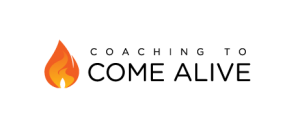
The Consequences of Belief
For working through fears/beliefs about upcoming or recurring experiences.
This is a cognitive behavioral exercise called ABCDE and though I like to think I’m way less stuffy than the average cognitive behaviorist (only kidding, University of Minnesota!) I truly dig this work as a powerful tool for shifting thoughts.
This is an excellent exercise for independently working through worries or fears about upcoming situations or imminent conversations. It helps us get out of our fears and into the present moment where we can objectively evaluate our triggering scenarios and move into a place of peace. As a regular practice, this is a change model for transforming fears into empowerment.
-
- A) What is the ACTIVATING event?
Describe as objectively as you can, the situation (Situational A) and your critical fear of the situation (Critical A).
Example-
Situational A = A man giving a presentation in two weeks.
Critical A = Worrying that he won’t be able to answer all of the questions after the presentation.
-
- B) What is the self-limiting / defeating BELIEF?
What are your fears/beliefs surrounding your Critical A?
Continuing Example- He fears he will be exposed as a phony if he can’t answer all of the questions after his presentation. (Typical perfectionist!)
-
- C) What are the CONSEQUENCES of this belief?
What is happening in your life, due to your fears of this situation?
Continuing Example- He is suffering from rising anxiety, frantic over-preparation, distancing himself from everyone at work, problems with all of his relationships due to stress and irritability. He is suffering from headaches and sleeplessness. His heart is racing. He is depressed.
-
- D) Can we DISPUTE this self-limiting, defeating belief?
Using the five criteria below in the example, work through your fears/doubts/beliefs and see if they can hold up to your scrutiny. Do they start to fade with deeper processing?
Continuing Example-
-
-
- Is this belief rigid or flexible? If he can’t answer all of these questions, does this truly make him a certifiable phony?
-
-
-
- Is this belief extreme or non-extreme? Is it fair to label a person a phony because he can’t answer a couple of questions?
-
-
-
- Is this belief realistic? Does an expert always have every answer to every question? If he were an actual phony would he have been put into this position to deliver the presentation in the first place?
-
-
-
- Does this belief make sense? Because he wants to answer every question, does that mean it has to occur?
-
-
-
- Is this belief helpful? Are the costs of this belief greater than the rewards?
- E) What is the new and EFFECTIVE outlook?
-
Take a new rounded view of the situation, in stark contrast to the original all-or-nothing quality of the self-defeating beliefs. Can you look at your situation with excited curiosity (be the Fascinated Observer), rather than perceived catastrophe?
Continuing Example-
He now realizes that he was being rigid, harsh, and unfair to himself. If he can’t answer a question he will ask someone in the audience, or he will make it a personal task to find the answer. Gaps in his knowledge will be filled, not condemned. He expects to give a strong performance and will continue to improve over time. He will look forward to this experience as a gift, not something to have a break-down over. His energy is now flowing and empowered.
The take away from this is an empowering way of being, when we learn that certain events don’t actually cause consequences, they only influence & contribute to the consequences. Truly, it is our beliefs that cause the consequences. Learning that we can change the outcome by modifying our beliefs about the situation, can lead us to a new place of empowerment where we accept that we are not dependent on other people or situations to change before we can.
References:
This cognitive behavioral exercise was developed through the research of Dryden and Neenan, 2004; Ellis and MacLaren, 1998
Passmore, J. (2010). Excellence in coaching: The industry guide (2nd ed). Philadelphia: Kogan Page.
